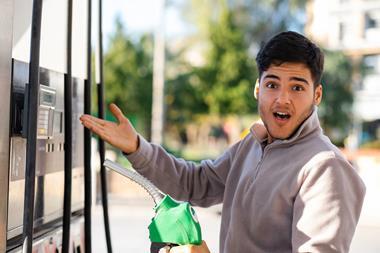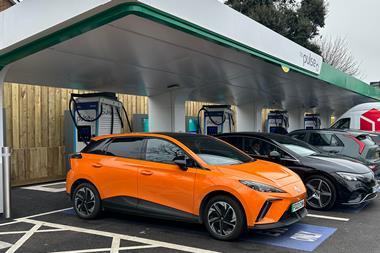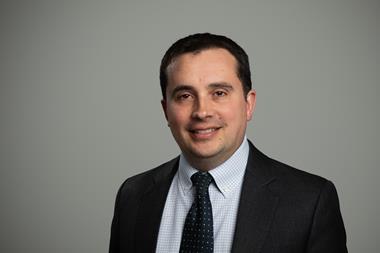
It’s been another busy year for forecourt retailers. We’ve had the completion of the MFG/Morrisons deal and Zuber Issa buying EG Group’s UK forecourts and starting an ambitious acquisition spree.
Those were ‘good news’ stories, however, on the bad side were drive-offs and shoplifting incidents hitting the headlines with, astonishingly, one senior police officer excusing drive-offs as ‘drivers having a bad day’.
Feelgood stories included Rahila and Danny Ahmed opening a boutique hotel over their Gulf site in Birmingham and Harvest Energy’s Stuart Riding buying his first forecourt.
For Roger Perry, who has two sites in Yorkshire, the highs of 2024 included the resilience the sector: “It is amazing, forecourt profitability remains good, and we continue to maintain the shop volumes put on during covid. Those of us that have invested in the last couple of years are seeing a good return and both demand and prices remain strong for property.”
On the ‘low’ side, Perry says verbal and physical abusive towards staff has never been greater. “While there are pockets of support from the police in some areas, staff deserve far greater respect and support than they are getting at the moment.
For Dan Perry, director of operations at Ron Perry & Son, 2024 was a case of the ‘good, the bad and the ugly’.
“The high point of the year was being nominated for five Forecourt Trader of the Year awards and enjoying the always brilliant awards shindig, while the low point of the year has been the spate of shoplifting that seems to be an industry-wide problem,” says Perry.
“We have mitigated this by installing the Vars ANPR system along with AI face recognition cameras but the root problem of the shoplifters has been a gruelling and ongoing battle throughout the year.
“The good news throughout the year has been that fuel margins have been relatively steady; Rollover hot dog sales have maintained steady growth along with the hot food in general. The bad news was that overall operating costs rising in the form of utility bills and broader supplier pricing. The minimum wage increase of April 2024 seems to have pushed up the relative costs across the board in our industry sector, necessitating a near constant reassessment of supplier prices.
“And the ugly for the year was definitely when we had a site shutdown when a grenade was found onsite back in April, which involved the bomb disposal squad.”
Joe Hockenhull, managing director of Top 50 Indie Hockenhull Garages says the highs of 2024 were mostly down to fuel volumes growing to new heights and margins being fair and stable. “Seeing the growth in this area while matching the supermarkets’ pricing has given us a lot of encouragement for the future and allowed us to experiment in the business with new offers in store.”
Hockenhull agrees that forecourt crime – both in the shop and on the forecourt – has definitely grown: “However, with effective preventions like the ANPR services we utilise from both VARS and Big Brother, we have combatted both elements well; although it will never irradicate it completely. Introducing the TSG pay at the pump/pre-payment at some of our sites has lessened the issues also.
“Further challenges lie ahead with disposable vapes bans but with the industry being in a good position we feel ready for what’s coming and will adapt the way we need to.”
- MFG motors on
Barely a week went by during 2024 without Top 50 Indie number one MFG appearing in council records across the land, having applied for planning permission for one development or another.
Whether extending a shop or knocking down a car wash to make way for EV charging and jet washing, MFG is certainly keeping the planners busy.
Back at the start of 2024, MFG agreed to purchase 337 forecourts from Morrisons along with 421 plots of land at their supermarket locations for use as EV and valeting hubs. As part of the transaction, Morrisons took a 20% stake in MFG, although both businesses share the same proprietor.
This major acquisition well and truly cemented the business’s status as the UK’s biggest forecourt operator with 1,216 sites.
And as soon as MFG buys a site, its contractors get busy redeveloping as illustrated by the fact that all 337 Morrisons had been refurbished by the end of the year.
The company’s low-cost base means it is able to use free cash to invest in its estate, including redeveloping around 50 sites a year, either knocking them down and rebuilding them, extending them, or adding foodservice.
Another priority has been investing in a network of ultra rapid charging hubs, many of them on the 350 acres of land acquired from Morrisons. MFG’s impressive EV development programme aims to create “industry-leading travel retail destinations”. The company will have just under 1,000 EV ultra-rapid charging bays at around 200 sites by the end of this year and plans to add one EV hub a week next year.
All the hard work this year paid off at October’s Forecourt Trader of the Year Awards where MFG was on numerous shortlists and walked away with five trophies, including the top accolade for its new-build site in St Clears, Carmarthenshire.
And the journey continues as investment in MFG’s current estate will be more than £170m next year, says chief executive William Bannister.
- EV market not charging ahead as fast as expected
The change in government in July led to the ban on the sale of new ICE vehicles being brought forward to its original 2030 date. However, things are not going as planned as low consumer demand dogs the EV market.
Quite simply their high prices have continued to put consumers off during 2024. Most sales of new EVs are to fleets thanks to incentives such as the salary sacrifice scheme. Where many private drivers do opt in to owning an EV is via the used car market. High depreciation means drivers can snap up a used EV for a bargain price.
According to the Society of Motor Manufacturers and Traders (SMMT) industry anticipated that 457,000 electric cars would be registered in 2024, which would have accounted for 23.3% of all new car registrations. However, its latest market outlook shows 94,000 fewer cars will be registered, totalling just 363,000 with a market share of 18.7%.
Such has been the concern over lower than anticipated EV sales that the UK automotive industry has called for urgent government intervention to help stimulate demand.
Meanwhile, the number of public chargepoints in the UK has grown from 53,865 at the end of 2023 to more than 70,000 by November 2024, representing a 32% increase in devices, according to Zapmap.
Across the forecourt sector there has been big investment in EV charging from Top 50 number one MFG as well as much smaller players in the market.
In May, Top 50 Indie Midland Motor Fuels put in its first EV chargepoint, at its busy Tyburn Road site in Birmingham. Director Shailesh Parekh took advantage of a new operating model from Forward EV, where he bought the equipment and Forward-EV installed it and now maintains it. It cost Shailesh less than £30k to get the 50kW EV charger up and running.
And in November, Johnny Srikrishna followed suit by installing his first EV charger, via Forward EV, at his site in Epsom, Surrey. The 50kW unit with two contactless charging points was supplied and installed, again for less than £30,000.
While this is good news, a new report from the National Audit Office found that chargepoint rollout was generally being hindered because it is slower and more expensive than it needs to be for chargepoint operators to get planning permission and electricity grid connections.
The report says the UK is currently on track to meet the minimum 300,000 chargepoints needed across the country by 2030, but the government faces challenges to address the location of them, their accessibility and wider barriers such as planning rules.
- Zuber starts to build his empire
When readers of the highly anticipated Top 50 Indies report, which came out in February 2024, saw how EG Group had dropped from the number two position to number 11 they may have understandably been shocked.
Due to the divestment of most of its sites to Asda, EG Group’s UK forecourt numbers shrank from 380 sites in 2023 to just 34 in early 2024. In the report we noted that the Group still had thousands of sites abroad and had confirmed that it would like to grow its UK estate again. And that it did thanks to the efforts of Zuber Issa.
Those in the industry eagerly watched his every move during 2024, with four stories about Issa featuring in the Top 10 most read Forecourt Trader stories of the year.
In April 2024, we reported that Issa was believed to be planning to step down as co-CEO of the EG Group, leaving the company in the hands of his older brother Mohsin, if he could complete a deal to acquire the remaining UK forecourts owned by the business.
Come November and Zuber Issa had completed on the purchase of the 34 UK forecourts as well as certain foodservice locations of EG Group.
Trading under the EG On The Move brand, he has been busy opening a series of impressive new-build forecourts, reaching a network of 47 petrol filling stations, including the 34 sites he recently acquired.
In the summer Zuber instructed commercial real estate firm Colliers to find his 120 sites suitable for forecourt, convenience or foodservice ventures.
In 2024, Zuber also stepped down from his executive leadership role at EG Group, becoming a non-executive director. Mohsin now leads the group.
- Food to go keeps on innovating
No half-decent forecourt operation is complete nowadays without a good food-to-go offer and 2024 was another year of innovation across the category.
In November, having already won the Best Forecourt Innovation accolade at the Forecourt Trader of the Year Awards 2024 for its Fireaway Pizza outlet, Whitfield Service Station near Dover opened the first Doner & Gyros kebab and wrap franchise on a forecourt.
Whitfield is Doner & Gyros’ sixth site and director Diljit Brar describes it as an “express version” of the franchise. He says sales are already good.
The Fireaway Pizza outlet at Whitfield offers a Nutella Pizza, which is incredibly popular.
Also catering for those with a sweet tooth, is Fuzail Patel who has launched a “high impact” self-service dessert bar concession at two of his four forecourts.
The Yoh Sweet concept, says Fuzail, uses minimal labour and fridges to extend the life of the giant cookie and brownie pies, brownies, cheesecakes and gooey cookies. He is now also offering the concept to fellow operators.
On the coffee front, there was a new entry courtesy of premium Italian brand Lavazza. The company launched its coffee concept at The Forecourt Show and immediately signed up 10 forecourt operators to give it a try.
Meanwhile, at shopfloor level, Joe Hockenhull, managing director of Top 50 Indie Hockenhull Garages, says the foodservice category has grown from strength to strength and has now become a main reason why customers keep coming back.
Hockenhull’s food-to-go offer varies from site to site: “Some sites didn’t have the space for foodservice brands like Subway or others which require large kitchen areas. Having brands like Stone Willy’s and Rollover, which take up less space, have given these smaller sites new sales growth and brought new customers in.”
- Rising crime hits sector hard
Unfortunately 2024 will be partly remembered for all the criminal activity in the retail sector, with forecourts hit by a double whammy of drive-offs and shoplifting.
In the summer we reported that drive-off failure to pay for fuel incidents had risen by 12.8% between April and June, compared with the three months before, representing the largest rise in these cases in 12 months.
The data, provided by the British Oil Security Syndicate (BOSS) from its Payment Watch debt recovery scheme, also revealed that although the number of no means of payment (NMoP) events was 4.1% lower than the previous quarter, continuing the decline in recent months, the average cost of NMoP rose by 3.7% to £69.89.
During the second quarter of 2024, the average number of unpaid fuel incidents per site increased by 2.4% – with 28.8 per site, with NMoP accounted for 56.4% of unpaid fuel reports to Payment Watch.
Meanwhile, the Office for National Statistics revealed that shoplifting in England and Wales was at a 20-year high, with 469,788 offences logged in the year to June 2024, up 29% on the previous year.
And in November we reported how an exclusive Sky News and Association of Convenience Stores survey revealed that 77% of retailers suffered from retail crime within just one week at the beginning of October.
These figures are shocking and these crimes should not be happening but retailers are fighting back.
In February, at the Forecourt Trader Summit, retailer Ben Lawrence told the audience how he was employing a security guard at his BP Sholing site were while staff were utilising headsets to allow for easier communication and a quicker response to incidents.
In the summer we reported that Top 50 Indie Sewell on the go’s staff were trialling body cameras
Murco dealer Veer Patel is preventing up to £200 a month of stock being stolen by fitting Chirp-protect alarmed security tags onto high value items in his family’s Spar store.
For drive-offs, many retailers have turned to Vars Technology which uses ANPR to keep track of drivers and events. Top 50 Indie Valli Forecourts says the tech has prevented £630,000 a year in drive-offs across its 16 sites.
Vars expanded its services earlier in the year with the launch of next-generation facial recognition technology which captures images of everyone entering a forecourt store and matches them against a list of known criminals.
Police response to retail crime varies widely and in many cases, retailers get no help.
In November, we carried the story of Kavita and Sanjay Pilani, who own Empire Garage in Mablethorpe, and have been plagued by drive-offs. However, those drive-offs were simply dismissed by a police superintendent as being committed by people who were ‘not having a great day’.


























